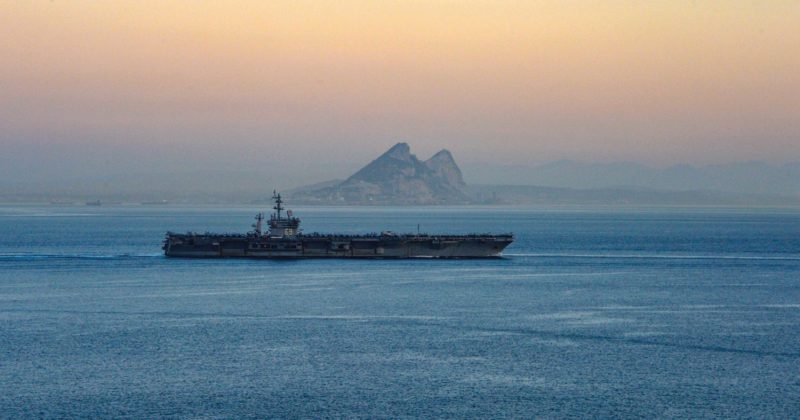
With the appalling carnage in southern Israel and Gaza threatening to set an already blighted region ablaze, it has quickly eclipsed the grinding carnage in Ukraine. That the public has been transfixed by the ongoing slaughter in part of the Levant is perhaps partly due to the omnipresent social media cycle and its manipulation by all sides, which has polarised people by the million.
Slaughter elsewhere in the region in recent times did not elicit such emotions and public demands for intervention. Syrians opposed to the regime in Idlib and Aleppo can attest to that, with their cities destroyed. The world merely watched their cruel fate unfold. It is estimated that the four-year siege of Aleppo by the Syrian regime, with support from Russian and Iranian forces, cost more than 30,000 lives.
There were Western military interventions on the peripheries in Syria and Iraq – cruise missiles fired by Western warships occasionally, with regular air strikes and the use of Special Forces too. Those, however, were part of the campaign to destroy the Islamic State terrorist group. And the battle to retake the Iraqi city of Mosul from Islamic State cost around 8,000 civilian lives.
City streets around the world were not filled with protestors demanding an end to the death of civilians and destruction in those benighted places. And now the Israel-Hamas War is the latest depressing chapter in the destabilisation of the Middle East, which in some ways began 20 years ago with the invasion of Iraq.
No one was prepared to listen to the region’s inhabitants when they warned of the risk of plunging it into murderous anarchy – take Saddam away, evil though he was, and the genie would be out of the bottle. Those that warned against the USA and its allies taking their eye off the ball in Afghanistan to invade Iraq didn’t receive any prizes for being correct. No one seemed to listen to the Jordanian monarch when he warned Iran was establishing an arc of influence from Iran to Lebanon. Iran became a major player not only in the post-invasion Iraqi insurgency but also gained an entry to Syria, while Islamic State was to establish itself in Syria and Iraq. Russia saw its moment to be a major Middle East player again, after the USA and UK decided not to militarily punish Assad for using chemical weapons against his own people in Syria.
And there are now dangers further afield created by war in the Middle East. Russia has received a boost that may help with its ‘Special Military Operation’ in Ukraine, for Israel’s need for US munitions to feed its assault on Gaza in a bid to eradicate Hamas is drawing them away from Kyiv’s forces. Some politicians in the USA that are against supporting the Ukrainian cause are keen to see Israel militarily assisted while cutting off Kyiv. With the Ukrainian ground offensive failing to reach the Sea of Azov and sever the Russian land bridge to Crimea, there is a chance Moscow can hang onto its newly conquered Donbas territories and sue for peace on its terms.

Other actors on the world stage may now see opportunities to take a gamble while the world’s attention is focussed on the Israel-Hamas War. And, if there is a theme that runs through the past 20 years of bloodletting and destruction, it is that the international order is fracturing and behaviour that would not have been tolerated previously, while perhaps not yet the norm, is no longer unexpected. Amid much talk and diplomatic effort to save a rules-based order and adherence to international law, both are freely undermined and ignored when it suits powerful countries aiming to secure their interests and those of their allies. This undermines efforts to rein in those elsewhere who want to negatively reshape the global order at the expense of everyone else. That fear is certainly abroad in Asia-Pacific where Beijing eyes its ‘errant province’ across the Taiwan Strait, in the hope it can finally unite all Chinese people under Communist rule.
China may make its bid to seize Taiwan in 2027, as some analysts fear, or by 2049, to coincide with the anniversary of communist victory on the mainland. The latest Pentagon report on China’s military highlights that it is increasingly capable of doing this. See P16.
China’s antagonistic behaviour in international waters and airspace does little to dispel such fears. However, it isn’t irredentism that fuels China’s lust for Philippines territory in the South China Sea, but naked greed for natural resources. It is also driven by a desire to ensure that any other party operating in the area does so on China’s terms and with its interests in mind. With the world’s focus elsewhere, perhaps Beijing may be tempted to throw caution to the wind and brush Philippines forces aside and seize what it has not yet managed to conquer in the South China Sea. Or it could aim higher and try to take Taiwan sooner than we fear. If so, then it will be hoping that it can complete the conquest before any military help can save the day for Taipei. Plenty of other states and non-state actors have post-Cold War gambled big, and lost: Al-Qaeda weren’t expecting to be annihilated in 2001;
Britain and the USA were simply divorced from reality when invading Iraq in 2003; the Gaddafi regime in Libya thought it could mercilessly crush a rebellion in 2011 without intervention, as did the Syrian regime in 2012.
Russia was expecting a quick regime change campaign lasting five days in early 2022 when it blitzkrieged into Ukraine. What exactly Hamas hoped to achieve in October is presently unclear, but Gazan civilians are now being killed in their thousands as Israel seeks revenge and to eradicate the Iranian-backed group.
As can be seen in various articles presented in this edition, Western navies have gathered in the eastern Mediterranean to work with regional allies in trying to keep a lid on the latest conflict in the Middle East.
Their aim is to ensure it doesn’t escalate into regional conflagration that sees Iran and Israel going toe-to-toe. NATO fleets are also simultaneously trying to contain Russia’s naval power in the Atlantic and Baltic, while various nations in Asia- Pacific are facing down China at, and over, the sea. It is putting great strain on ships, aircraft and amphibious forces, but they must hold the line.

-
For more on related topics, CLICK HERE for contents list (P2/4, P8/11, P14/16 and P30/31)





Comments
Sorry, comments are closed for this item